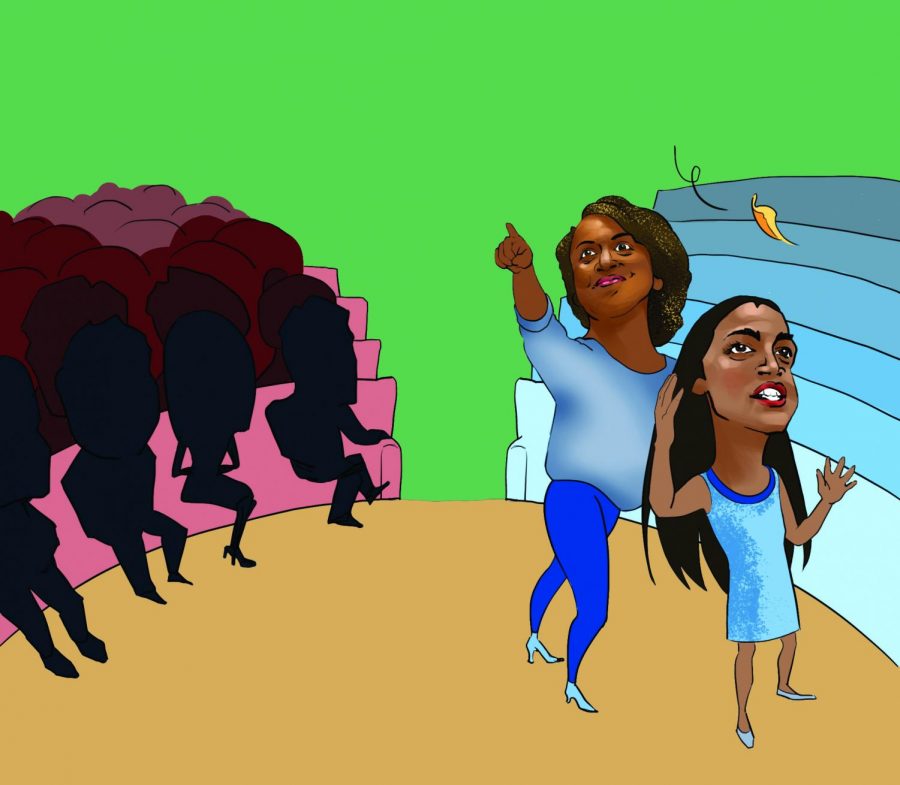Should Democrats Swing Center?
The 2018 midterms are crucial in terms of the political direction of the country. This fall, Democrats are entering an election season as the minority in Congress with an unpopular Republican president: a setup for midterm success. Back in 2006, Democrats were able to take control of power in Congress when President Bush’s popularity was low; similarly, Republicans took control of Congress in the midterm elections of 2010 and 2014. This precedent suggests the Democrats have a legitimate chance of taking both the House and the Senate this fall. However, if they want to do so, Democrats will have to embrace the moderate wing of the party.
Recently, the more progressive wing of the Democratic party has cited Ocasio-Cortez’ victory in NYC or Pressley’s in Massachusetts as examples of why progressives are more motivated to vote in the midterms – a fact they say should motivate Democrats to abandon more moderate and conservative platforms. Some liberal pundits have taken this to heart, as several argue that the Democratic Party should focus on a strong progressive agenda.
However, this argument is short-sighted. For example, let’s take a look at Tennessee, where former governor Phil Bredesen, Democrat, will be challenging Republican representative Marsha Blackburn for the Tennessee senate seat. Bredesen is by no means a progressive. He supported the Trans-Pacific Partnership, believes in light deregulation of business, and does not support universal health care. While such positions may be unpopular in major urban centers, more conservative areas, such as Tennessee, are more receptive to centrist as opposed to progressive policies. As Bredesen says, “If this is a race between Marsha Blackburn and me, I’ll win it. If this is a race between a Democrat and a Republican…I’ll lose.” Considering that voters in states like Tennessee often associate Democrats with ideals that are far removed from their own, it is essential that Democrats reframe their arguments and campaign in these areas on a centrist platform.
In the Senate, Democrats are vying to protect twenty-six seats, while Republicans only have to defend nine. Many Democratic incumbents are campaigning in Trump-won states such as North Dakota, Indiana, and West Virginia. For the Democrats to flip some of the seats that Republicans hold, especially in Nevada, Tennessee, Arizona, and Texas, they will have to appeal to Democrats, moderates, and even some Republicans.
To win the midterms and to advance their legislative agenda, Democrats need to become a “big-tent” party that allows for different opinions to exist as long as the major Democratic agenda is forwarded. A relevant example of why Democrats will need to rally is the need to oppose Brett Kavanaugh’s nomination to the Supreme Court. At the moment, Democrats have forty-nine votes to the Republican’s fifty votes, meaning that Kavanaugh’s nomination, even plagued by sexual assault accusations, will most likely go through.
It is inevitable that, in the near future, there will be decisions that are decided by one vote. One of the pressing issues for Democrats is the Supreme Court, where potential vacancies that could be filled by President Trump or future Republican presidents. A Supreme Court shift from Justice Kennedy to a Justice like Brett Kavanaugh should strike fear into Democrats, both leftists and centrists. Kavanaugh’s rulings on abortion and reproductive rights, LGBTQ+ rights, and presidential authority will likely have negative impacts on the policies that Democrats have been fighting to advance.
Also, let’s not forget that Obamacare was only protected by three Republican votes! Those votes – Lisa Murkowski’s (R-AK), Susan Collins’s (R-ME), and John McCain’s (R-AZ) – were the only ones preventing a full repeal of the Affordable Healthcare Act, which has provided millions of Americans with coverage. However, as we are seeing now with the Kavanaugh nominations, Republican votes for a Democratic cause are not a guarantee. After all, these Senators rely upon the Republican party for them to get reelected.
Some Democrats may cite surging progressive movements in Republican states, like Kansas, as evidence that Progressivism can be an appealing message. Progressives argue that their candidates are more energetic and enthusiastic, and, therefore, that their candidates receive more media attention and encourage Democratic voters to come out. However, these arguments fail to recognize that progressivism, while more flashy than centrist liberalism, is also an easy-to-attack target for right-wing pundits and an incentive for the broad, conservative base to vote against politicians they believe will do harm to them and their ways of living.
As a result, the Democrats must be willing to compromise on policies that are appealing in Republican-leaning areas, without compromising core Democratic beliefs. Unfortunately, in the status quo, being the majority and progressive are mutually exclusive, because of seats that have to be flipped or protected.
So, progressives, would you rather have a more liberal, progressive Democratic party, but in the minority? Or, would you prefer a majority with a more moderated platform that is able to resist significant Republican proposals that would easily otherwise pass?






